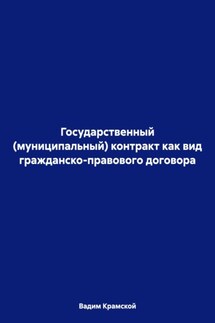LLC in court - страница 7
6. Cardinal modernization of the municipal national infrastructure, as well as the creation of new transport communications – roads and railways – mainly in the east and south of the country.
7. Creation of a mentally and historically standard social system for the protection of the population in Russia, which includes free high-quality medical care and, accordingly, compulsory secondary education for 100% of the population, higher education is free for 50% of young people, guarantees for the provision of a full range of previously available social benefits or their real monetary equivalent.
Sources of implementation of the above postulates: 1. change of the regulations for the use of raw rent. Approximately $140 billion of growth over three years (according to forecasts of the Central Bank of the Russian Federation); 2. legitimization and privatization through a special compensation tax, which will bring about $30 billion to the Federal Budget and extra-budgetary trust funds. 3. additional budget revenues that will arise when the economic growth rate changes (12-15% per year). Thus, we see the economic and legal basis of the YUKOS company, and we can also draw appropriate conclusions about the above precedent. An important aspect is the disputes between legal entities and the state related to brokerage operations on cryptocurrency.
Let's consider the legal side of the issue. Let's assume that an individual entrepreneur, self-employed or a legal entity bought a cryptocurrency using automated trading. And that's how it happened that BTC (bitcoin) had a "criminal past". And then an honest acquirer has a real problem. But it is important to remember that a bona fide acquirer should not be responsible for the origin of the cryptocurrency. For example, Chainalysis KYT has provided services for assessing the past of BTC, including through checking for connection with the "darknet" and fraudulent acts. The services of this service are paid and their cost is determined by the object of transactions and coins with which the user wishes to investigate the legality of the operation. In the "dark past", the use of "mixers" may become possible, – services that allow mixing and confusing transactions that make the source of the origin of funds difficult to calculate.
But such services are also used by scammers who pursue the goal of laundering income.
In this regard, exchanges block accounts to which the received cryptocurrency has passed through the "mixer". For example, at the end of December, Binance refused the user a request to withdraw funds that were supposed to go to the Wasabi wallet, which provides these features. Thus, Valery Petrov, Vice-President of RAKIB, expressed confidence that honest users do not need to resort to the services of such services. According to Petrov, in the legislation, as well as in the stock market, in general, there is a concept of a "bona fide acquirer".
Adhering to this rule, the investor is not directly responsible for the asset that he acquired, for example, if it was stolen or noticed in any criminal transactions. This practice should extend to crypto operations," Petrov emphasizes.
"If you have a cryptocurrency with a criminal background, then a conscientious acquirer should not be responsible for those who violated the law before him… And the owners of coins can be advised to avoid participating in obviously illegal operations for its turnover.






